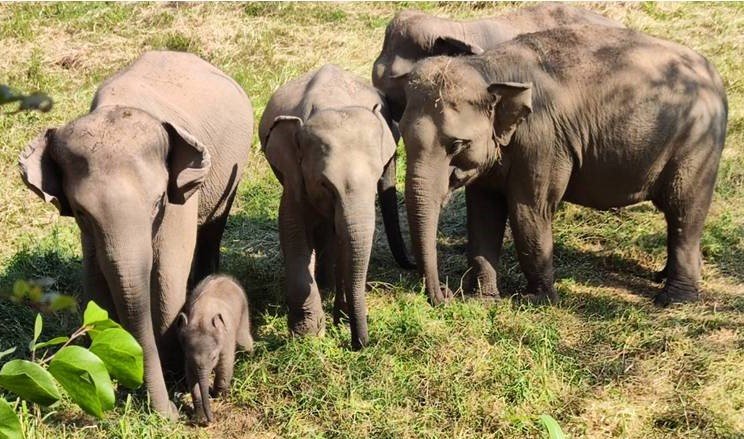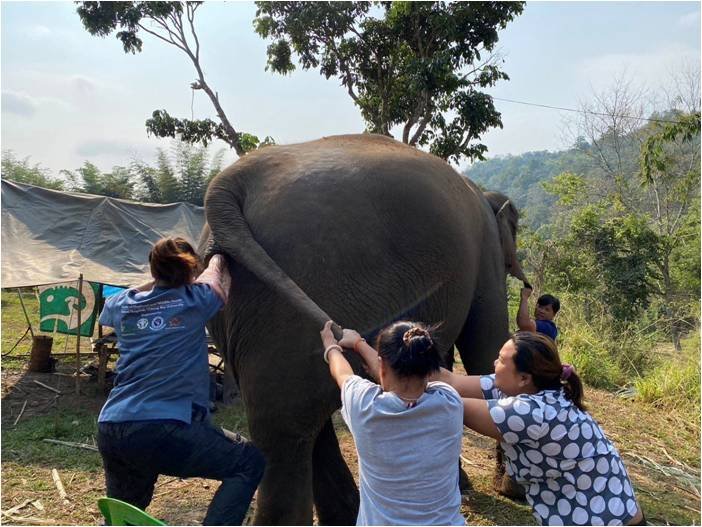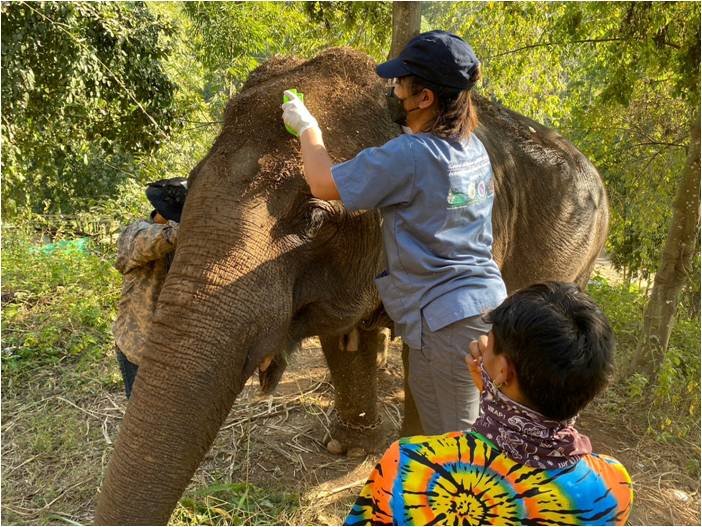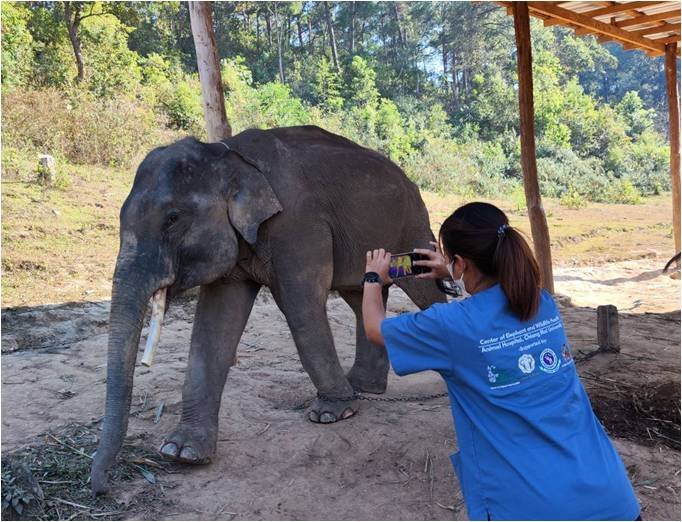The beginning of the new year saw the Chiang Mai University Mobile Vet Clinic on the move from the Mae Tang to the Mae Wang districts. The entire month of January was spent visiting elephants with ailments ranging from gastrointestinal issues to skin ailments.
Several of the gastrointestinal issues that the veterinarians attended to were cases of colic, treated with anti-inflammatories, non-steroidal pain relievers as well as fluids and vitamins. Within a few days, those elephants were back to eating and defecating normally - a relief to the elephants and their caregivers, alike.
Elephant receiving fluids as part of treatment for gastrointestinal issues
One of the more serious cases of gastrointestinal upset from last month was on January 25, when the vet crew was called for a 46-year-old female elephant who was not eating or drinking, and presented with signs of bloat. Once the veterinary team got to the elephant and did an exam, it was discovered that the old girl was dehydrated, from eating soil and too many bananas. While her temperature was normal, she was found to have a slight distension in her abdomen. Fluids, vitamins and pain relievers were administered, as well as the recommendation to encourage walking, which helps to get the digestive tract moving. The mahouts were given more information by the team on what to feed their elephants - a diet high in fiber, like grasses, to prevent bloating. After several rectal enemas, more fluids and a lot of walking, the elephant was eating grasses and began to defecate normally.
Enemas performed to remove any feces that the elephant has been unable to pass on their own can provide fast relief in cases of colic
Another serious case, on January 2, was from a 50-year-old elephant experiencing a head wound. Upon arrival to the elephant, the veterinary crew saw a large, non-bleeding cut on the elephant’s forehead. The elephant had tried to self medicate by blowing dirt and grass on the wound, but she was experiencing pain and wouldn’t allow the veterinarian to treat the wound. Topical and anti-inflammatory medications were prescribed that the elephant owner could administer. A week later, the owner of the elephant called the veterinarians again saying the wound was worse. The elephant was transported to the Thai Elephant Conservation Center (TECC) hospital for further treatment, since the wound had now produced purulent material and had gotten larger and more painful. At the TECC the elephant could be in a more sterile environment, with additional people to help administer medication to help heal the wound. Oxygen therapy was also administered to prevent the spread of bacteria. The wound was reportedly fully healed, after a recheck of the elephant on Jan 27.
To end the month, the CMU crew visited a 6-year-old elephant with a swollen chin, which can sometimes be an indication of Elephant Endotheliotropic Herpesvirus or EEHV. However in this case, the calf did not show any other signs of EEHV, including depression, diarrhea or other facial swelling. A thermal camera was used to pinpoint the spot of swelling, which wasn’t painful to the calf and was concentrated on one side of the face. The veterinarian took blood samples to rule out EEHV, and administered vitamin C and anti-inflammatory medications. After a check, three days later, the young elephant’s chin was less swollen and the calf was acting normally.
Infrared camera is used to pinpoint the potential cause of facial swelling
As we were ringing in the New Year with friends and family, the veterinary team with the CMU Mobile Vet Clinic was hard at work providing life-saving treatments to Thailand’s elephants.
To support the efforts of the veterinarians and staff from the mobile unit, please visit www.asianelephantsupport.org/donate and become a monthly donor.





